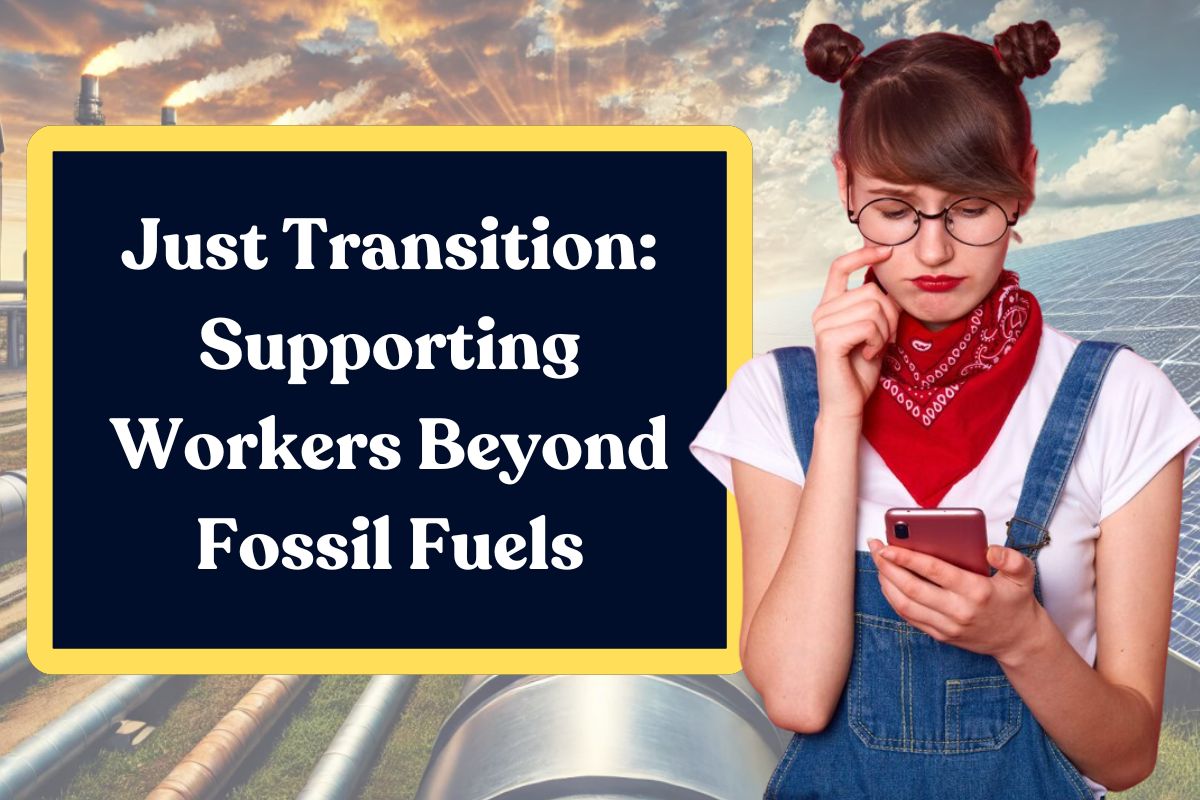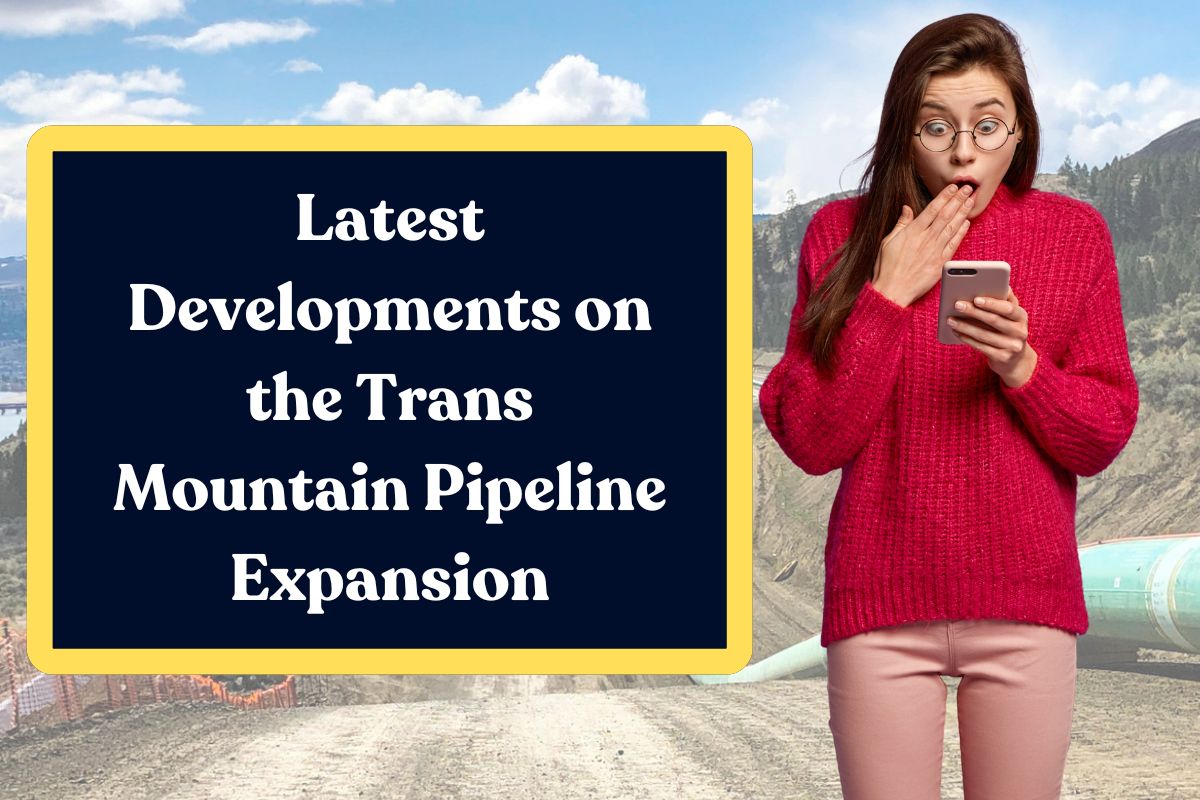The word just transition refers to the process of shifting to a low-carbon economy slowly, which will be sustainable in the long term. The whole process will be fair, and the main aim of the just transition is that no one should be left behind.

To achieve a low-carbon economy, the government works to create economic opportunities by helping people relocate and providing training that will remove the inequality among them due to a lack of knowledge.
Just Transition: Supporting Workers Beyond Fossil Fuels
According to the International Labour Organization, a just transition is a way to get a greener economy that will give a fair and equal chance to everyone by providing enough work opportunities. It is simply a process that will shift the high-carbon economy into a sustainable one where no one will be left behind. ILO also estimates that if the right policy is implemented, it can create around 24 million new jobs globally by 2030.

Important elements of Just Transition
Just transition is a need of time because of global warming and loss of jobs in different sectors, so here are some points that will explain how it is important in different ways:
Support to workers:
Workers get the extra support if they come from a fossil fuel background. In support, they get Training programs, financial assistance, and relocation support. Some reports show that a shift to a green economy will generate 18 million new jobs and will provide support to the people who will face potential job losses.

Development:
It helps in community development by increasing the investment in different industries and infrastructure. The main focus will be given to the area that has fewer opportunities or the area that needs alternative economic opportunities.
According to the report of the ILO’s World Employment and Social Outlook 2018, greening in jobs increases job creation, especially in the field of sustainable energy, energy efficiency and renewable energy

Skill development:
It increases the skilled labour because fossil fuel workers get the proper training and education, so in the future, they can apply for better jobs and opportunities. It wants the social and economic systems to cooperate with each other to reduce greenhouse gases and increase the use of natural ecosystems.
Social Protection:
It provides safety to the workers regarding their future security. Workers who become unemployed in the transition period will receive healthcare benefits and unemployment benefits.

Inclusion:
It ensures that all the stakeholders, the government, workers, and industries, are participating in the decision-making process. Here, everyone will get a fair and equal chance to put their view.
Need for a Just Transition
1 Enhance life:
It will improve the lives of many workers as it is creating 24 million new green jobs, and 6 million jobs in carbon industries will be cut, which will contribute to the green environment. They are ensuring that they will achieve their target by 2030.
2. Global warming:
Just transition is not just about creating a job opportunity, but also meeting the goal of the Paris Agreement in reducing carbon emissions and limiting global warming to 1.5 degrees Celsius.
3 Energy Security:
It supports the use of renewable energy sources, which decreases the dependency on fossil fuels. An increase in the use of fossil fuels creates geopolitical tension because it increases pollution in the environment, and price fluctuation is very normal.
4. Avoid Discontent:
There were some cases when the climate measures and changes in the environment affected the lower-income group, which was a very inappropriate act. One of the examples is the Yellow Vest Protest in France, where a large number of workers oppose climate measures.
5 Regional Impact:
According to People Matters, it will create different job opportunities that will depend upon the region, like Americans, Asians, and Europeans will see 3 million, 14 million, and 2 million new jobs respectively.
Challenges in implementing the Just Transition:
Just transition provides the solution to the job and environment problems that different regions face due to the use of fossil fuels. However, it still has some challenges that have been addressed below:
- It is not a very cost-effective method, so the countries that want to implement it will need trillions of dollars in the coming three decades to convert coal mining into the thermal power sector.
- Some regions that are coal reliant will face the disparity, like India’s Jharkhand and South Africa’s Mpumalanga. Because both places don’t have enough resources to diversify their economies, which will lead to inequality.
- Coal-based power is the major source of development in developing countries like South Africa and India. Because coal is a source that provides 55% energy to India and for thermal power plants, they produce 70%.
- Companies will face a loss due to a change in the Assets, as the earlier assets will no longer be in use according to the International Energy Agency.
- New infrastructure will be needed as the old one will not be reliable because of its lack of adequate technology transfer.
Initiative for Just Transition:
There are certain initiatives that have been taken so that a just transition can be implemented in an effective way. Some of them are given below:
Just Energy Transition Partnership:
It was launched at COP 26 of UNFCCC, and it was decided that developed nations will help the developing nations in terms of financial and technical support for the energy transition in developing countries. Because developing nations face a shortage of money and it becomes difficult for them to make changes.
Just transition for all:
It is an initiative started by the World Bank to emphasize that it is a people-centric approach to reduce the use of coal, which is a carbon-intensive energy source. It was called people-centric because while implementing it, there will be no harm caused to the workers who are from the fossil fuel industry.
Delegates:
Different delegates, like the Governor, the employees, and the employer, were invited to the ILO guideline for a Just Transition for Environmentally Sustainable Economies and Societies.






